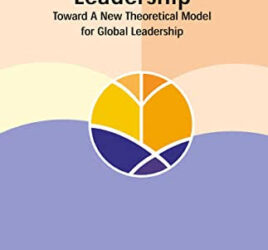 It is no surprise to anyone that the global Body of Christ is terribly divided and fragmented. Phil Butler, in his free e-book Well Connected: Releasing the power and restoring hope through kingdom partnerships[1] suggests practical steps towards “working partnerships and networks” and “new models of ministry that strengthen our credibility with the world” for God’s glory and the believers’ fulfillment.”[2] The book is divided into six parts, which can be read individually or consecutively depending on the reader’s interest.
It is no surprise to anyone that the global Body of Christ is terribly divided and fragmented. Phil Butler, in his free e-book Well Connected: Releasing the power and restoring hope through kingdom partnerships[1] suggests practical steps towards “working partnerships and networks” and “new models of ministry that strengthen our credibility with the world” for God’s glory and the believers’ fulfillment.”[2] The book is divided into six parts, which can be read individually or consecutively depending on the reader’s interest.
Well Connected is chock-full of principles and practical tips. From talking about the big picture of evangelism and discipleship to God’s design for Kingdom partnerships, Butler delves deeper to the motivations and driving forces for collaboration. “All effective partnerships seek change,” states Butler.[3] When the vision of the partners is too big to accomplish on their own (transformational change in their neighborhood, city, nation), partners must work together to see the desired change come to pass. Butler provides many models, tools, how-to’s and stories to equip the reader with the skills needed to form strategic partnerships.
One warning I found helpful: “Many times the quickest way to kill a partnership is to call a meeting—too soon!”[4] As a westerner, I tend to look for quick results. But I must keep in mind the difference between building a dinghy vs. designing a cruise ship, or between planning my vacation vs. organizing a European tour for an orchestra. Butler proposes four stages of developing partnerships: Exploration, Formation, Operation and Maturation.[5] (This is what Glenn Barth refers to in The Good City.[6]) Just think about what it would take to operate a hotdog stand versus a sky scraper.
Another helpful tip is that I “don’t need to have all the players to talk about possible cooperation. But [I] do need a few of the leaders or ministries already recognized as credible and competent in the field.”[7] It is easy to become disappointed when only a few respond to the call for partnership. Yet, having only a few to start with can be very strategic during the early stages of development.
Prayer is essential for building unity and staying connected with God’s purpose during the process. Butler suggests, “Each round of consensus development … provides a wonderful opportunity to pause and pray in small groups.”[8] Building a network of prayer supporters who will pray for the success of the partnership is vitally important.
Chapter 17 discusses international, functional and geographic networks. Chapter 16 is specifically focused on the challenges of partnerships for city-wide ministries. Reading this book, I realize that I am involved in facilitating and participating in numerous partnerships locally and globally. I intend to print out the book with my highlights to keep it nearby as a quick resource when working on growing my networks. I plan to review the book in preparation for my class project in order to specifically find practical action steps for developing the partnerships.
By Jacob Bloemberg
[1] Phil Butler, Well Connected: Releasing the Power and Restoring Hope through Kingdom Partnerships (Waynesboro, GA: Authentic Media, 2005). Download a free PDF copy of the book in any of these languages: French, Russian, Spanish, or English.
[2] Ibid., xvii.
[3] Ibid., 84.
[4] Ibid., 112.
[5] Ibid., 113-14.
[6] Barth, The Good City.
[7] Butler, Well Connected, 138.
[8] Ibid., 154.



